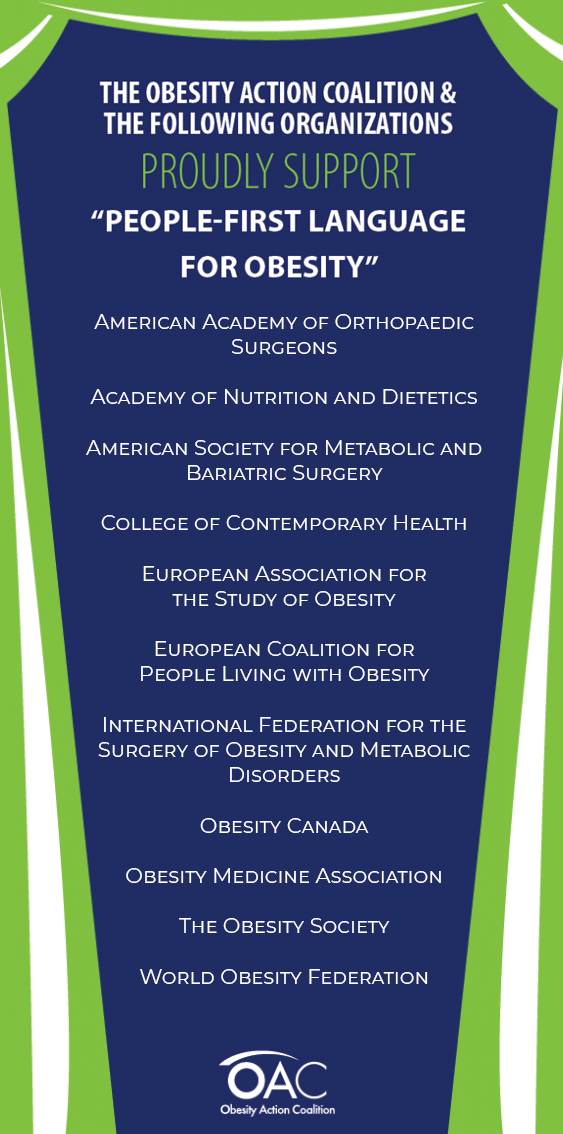 The language we use matters, and many don’t recognize that the way obesity is talked about further perpetuates weight bias and stigma. We see harmful language being used to talk about obesity and people with obesity in media, entertainment, healthcare, employment, education and much more. That’s why the OAC champions the use of People-first Language when talking about obesity and people living with obesity.
The language we use matters, and many don’t recognize that the way obesity is talked about further perpetuates weight bias and stigma. We see harmful language being used to talk about obesity and people with obesity in media, entertainment, healthcare, employment, education and much more. That’s why the OAC champions the use of People-first Language when talking about obesity and people living with obesity.
What is People-First Language?
People-First Language is not something new; however, it is new to the obesity community. For years, other chronic disease, such as those in the mental health and disabilities community, have adopted People-First Language and encouraged its usage in all reporting. For example, today you will see language such as:
“The man with diabetes was elderly.” instead of
“The diabetic man was elderly.”
or
“Individuals affected by schizophrenia are considered to have a mental illness.” instead of
“Schizophrenics have a mental illness.”
As you can see, these statements provide clear examples of People-First Language as they DO NOT label someone their disease.
How Can People-First Language Change Obesity?
Quite often, you will see news stories, articles and journal entries refer to an individual with obesity as “obese.” By using “obese,” we are dehumanizing individuals affected by this disease. Here are some examples of how you can use People-First Language:
“The woman was affected by obesity.” instead of “The woman was obese.”
“The man with obesity was on the bus.“ instead of “The man on the bus was very obese.”
As you can see here, as we did above, we’re no longer labeling an individual with their disease.
What Can You Do as a Person Writing about Obesity?
The OAC is encouraging all media, bloggers and others to utilize People-First Language in their writings. By utilizing People-First Language, we can further eradicate weight bias and stigma.
What Can You Do as an Organization to Support People-First Language?
The OAC is also asking organizations to sign-on to the People-First initiative and enforce this style of writing within their organization. To date, the following organizations have signed-on to People-First Language and are incorporating it into their organizational communications:
- American Academy of Orthopaedic Surgeons
- Academy of Nutrition and Dietetics
- American Society for Metabolic and Bariatric Surgery
- College of Contemporary Health
- European Association for the Study of Obesity
- European Coalition for People Living with Obesity
- International Federation for the Surgery of Obesity and Metabolic Disorders
- Obesity Canada
- Obesity Medicine Association
- The Obesity Society
- World Obesity Federation
People-First Handout to Encourage the Use of Appropriate Language
The OAC has created a helpful handout that you can use to encourage others to use People-first Language. To view/download this PDF, please click here.
